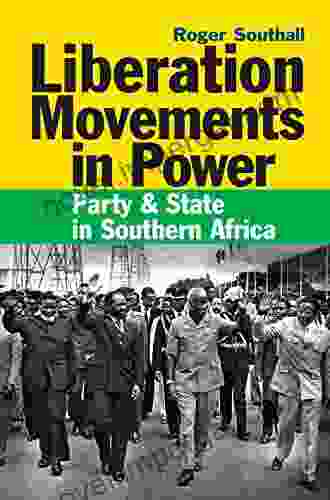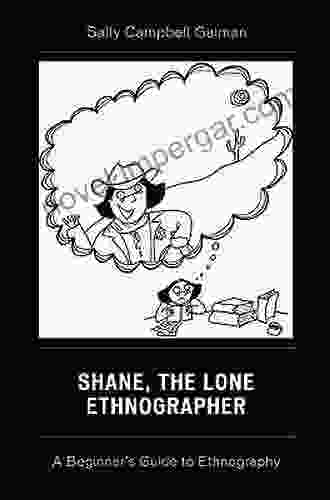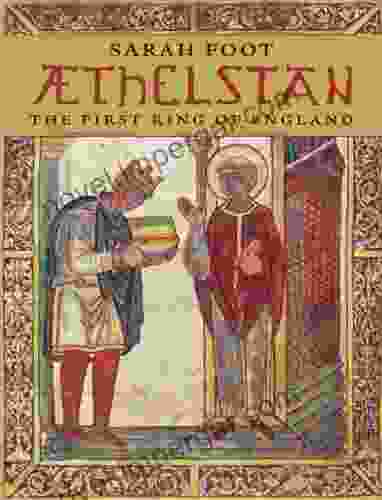Unveiling the Dynamics of Party and State in Southern Africa: A Comprehensive Exploration

4.7 out of 5
| Language | : | English |
| File size | : | 9461 KB |
| Text-to-Speech | : | Enabled |
| Screen Reader | : | Supported |
| Enhanced typesetting | : | Enabled |
| Word Wise | : | Enabled |
| Print length | : | 402 pages |
The relationship between party and state in Southern Africa is a complex and dynamic one, shaped by a multitude of historical, political, and societal factors. This article explores this intricate relationship, providing a comprehensive overview of the governance systems in the region. By examining the interplay between political parties and the state, we gain a deeper understanding of how power is structured and exercised in Southern Africa.
Historical Context
The modern party and state systems in Southern Africa emerged from the colonial era. European powers, primarily Britain and Portugal, imposed their own political systems on the region, leading to the establishment of Westminster-style parliamentary democracies. However, these systems were often undermined by authoritarian rule, which persisted in many countries after independence.
In the post-colonial period, Southern Africa witnessed a wave of liberation movements that sought to overthrow colonial rule and establish majority-led governments. These movements, such as the African National Congress (ANC) in South Africa and the Mozambique Liberation Front (FRELIMO) in Mozambique, played a crucial role in shaping the region's political landscape.
Political Party Systems
The party systems in Southern Africa vary widely in terms of their structure, ideology, and level of competition. In some countries, such as Namibia and Botswana, there is a dominant party system, with one party consistently winning elections. In others, such as South Africa and Zimbabwe, there is a more competitive multi-party system.
Political parties in Southern Africa often align themselves along ideological lines, with some parties espousing socialist or Marxist principles, while others adhere to more conservative or liberal ideologies. However, party ideologies are often fluid and can shift over time, depending on the political context.
State Structures
The state structures in Southern Africa reflect the region's diverse political histories and traditions. In some countries, such as South Africa and Zambia, there is a strong emphasis on constitutionalism and the rule of law. In others, such as Zimbabwe and Angola, the state is more centralized and authoritarian.
The relationship between the party and the state can vary significantly depending on the country's political system. In some cases, the ruling party has a strong influence over the state, while in others, the state maintains a degree of independence from the party.
Challenges and Prospects
The party and state systems in Southern Africa face a number of challenges, including:
* Corruption and patronage: Corruption is a major problem in many Southern African countries, undermining trust in political institutions and weakening the rule of law. * Electoral irregularities: Electoral irregularities, such as voter fraud and intimidation, can undermine the legitimacy of elections and lead to political instability. * Weak institutions: State institutions, such as the judiciary and the legislature, are often weak in Southern Africa, making them vulnerable to manipulation by the ruling party.
Despite these challenges, there are also prospects for improvement in the party and state systems in Southern Africa. These include:
* Strengthening democratic institutions: Strengthening democratic institutions, such as the judiciary and the legislature, can help to ensure the rule of law and protect citizens' rights. * Promoting transparency and accountability: Promoting transparency and accountability can help to reduce corruption and improve the quality of governance. * Fostering political dialogue: Fostering political dialogue between the ruling party and opposition parties can help to reduce political tensions and promote cooperation.
The party and state systems in Southern Africa are complex and dynamic, shaped by a multitude of historical, political, and societal factors. Understanding this relationship is essential for understanding how power is structured and exercised in the region. While there are challenges to be addressed, there are also prospects for improvement. By strengthening democratic institutions, promoting transparency and accountability, and fostering political dialogue, Southern Africa can enhance its governance systems and build more inclusive and prosperous societies.
4.7 out of 5
| Language | : | English |
| File size | : | 9461 KB |
| Text-to-Speech | : | Enabled |
| Screen Reader | : | Supported |
| Enhanced typesetting | : | Enabled |
| Word Wise | : | Enabled |
| Print length | : | 402 pages |
Do you want to contribute by writing guest posts on this blog?
Please contact us and send us a resume of previous articles that you have written.
 Book
Book Novel
Novel Page
Page Chapter
Chapter Text
Text Story
Story Genre
Genre Reader
Reader Library
Library Paperback
Paperback E-book
E-book Magazine
Magazine Newspaper
Newspaper Paragraph
Paragraph Sentence
Sentence Bookmark
Bookmark Shelf
Shelf Glossary
Glossary Bibliography
Bibliography Foreword
Foreword Preface
Preface Synopsis
Synopsis Annotation
Annotation Footnote
Footnote Manuscript
Manuscript Scroll
Scroll Codex
Codex Tome
Tome Bestseller
Bestseller Classics
Classics Library card
Library card Narrative
Narrative Biography
Biography Autobiography
Autobiography Memoir
Memoir Reference
Reference Encyclopedia
Encyclopedia S K Das
S K Das Yvonne Perry
Yvonne Perry S Martin Shelton
S Martin Shelton S H Parker
S H Parker Robert Kegan
Robert Kegan Ruth Cullen
Ruth Cullen Shabnam J Holliday
Shabnam J Holliday Rowan Morgana
Rowan Morgana Sharnel Williams
Sharnel Williams Robert Guffey
Robert Guffey Scott Ridley
Scott Ridley Richard Swinburne
Richard Swinburne Robert Hilburn
Robert Hilburn Sarah B Pomeroy
Sarah B Pomeroy Robert Somerville
Robert Somerville Kelsye Nelson
Kelsye Nelson Richard Seaford
Richard Seaford Richard Holdener
Richard Holdener Taylor Marshall
Taylor Marshall Robin Sharma
Robin Sharma
Light bulbAdvertise smarter! Our strategic ad space ensures maximum exposure. Reserve your spot today!
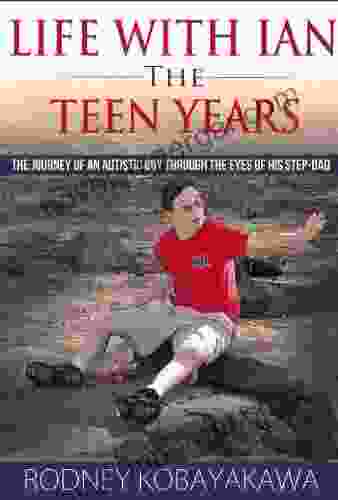
 Amir SimmonsThe Teen Years: The Journey of an Autistic Boy Through the Eyes of His Step...
Amir SimmonsThe Teen Years: The Journey of an Autistic Boy Through the Eyes of His Step...
 Jarrett BlairDelve into the Wondrous World of Nikolai Gogol: A Literary Journey through...
Jarrett BlairDelve into the Wondrous World of Nikolai Gogol: A Literary Journey through... Caleb LongFollow ·7.8k
Caleb LongFollow ·7.8k Corey HayesFollow ·5.3k
Corey HayesFollow ·5.3k Kenneth ParkerFollow ·12.3k
Kenneth ParkerFollow ·12.3k Salman RushdieFollow ·3.1k
Salman RushdieFollow ·3.1k Hunter MitchellFollow ·3.6k
Hunter MitchellFollow ·3.6k Hudson HayesFollow ·19.4k
Hudson HayesFollow ·19.4k Craig CarterFollow ·12.5k
Craig CarterFollow ·12.5k Dean ButlerFollow ·10k
Dean ButlerFollow ·10k
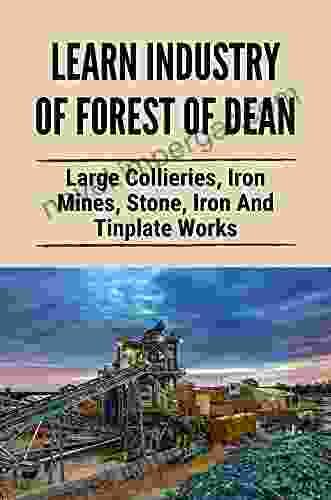
 Colt Simmons
Colt SimmonsLarge Collieries Iron Mines Stone Iron And Tinplate...
Step back in time and witness...

 Zachary Cox
Zachary CoxUnlocking the Secrets of Woody Plants: An In-Depth...
: Embark on a captivating journey into the...

 Yasunari Kawabata
Yasunari KawabataIntroducing 'Librarian Guide: 3rd Edition' – The Ultimate...
In the dynamic and ever-evolving...

 Jerome Blair
Jerome BlairEvading Honesty: A Masterful Exploration of Deceit and...
Prepare to be captivated...
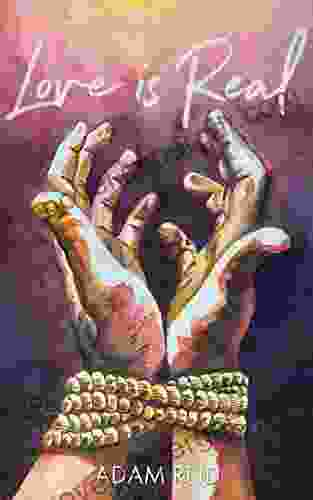
 Timothy Ward
Timothy WardLove Is Real: A Novel of Love, Loss, and the Enduring...
Prepare to embark on a...
4.7 out of 5
| Language | : | English |
| File size | : | 9461 KB |
| Text-to-Speech | : | Enabled |
| Screen Reader | : | Supported |
| Enhanced typesetting | : | Enabled |
| Word Wise | : | Enabled |
| Print length | : | 402 pages |


